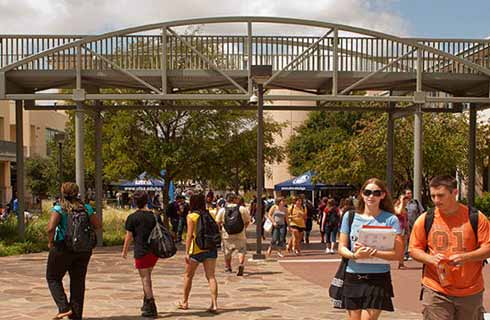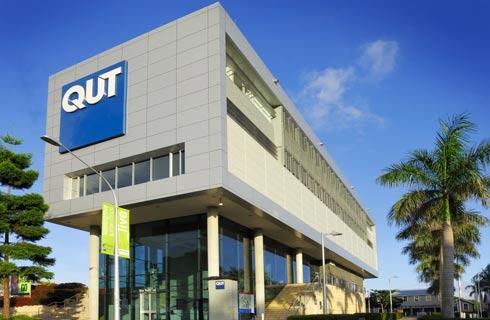MMath(荣誉)数学
MMath (Hons) Mathematics

学历文凭
Undergraduate Masters

专业院系
Mathematical Sciences

开学时间

课程时长

课程学费

国际学生入学条件
IDP—雅思考试联合主办方

雅思考试总分
6.5
- 雅思总分:6.5
- 托福网考总分:80
- 托福笔试总分:
- 其他语言考试:Pearson Academic PTE - 62 (with no less than 59 in each Communicative Skill) Cambridge C2 Proficiency or C1 Advanced - 176 with a minimum of 169 per component
CRICOS代码: G103
申请截止日期: 请与IDP联系 以获取详细信息。
课程简介
Take your mathematical knowledge to a higher level – the MMath is ideal preparation for a career involving research or high-level mathematical skills. This challenging four-year course takes your study to Master’s level. This course is ideal if you are considering postgraduate study or a career involving high-level mathematical skills or research. During the first two years you will follow a similar structure to the BSc. From the third year the MMath introduces a wider range of modules which explore more sophisticated methods of mathematical argument. The MMath in Mathematics is housed in a brand-new facility, purpose-built to meet the learning, teaching and study needs of students from the Department. When you choose maths you’ll be taught by a team of mathematicians with a passion for sharing the beauty of mathematics and a wealth of experience in research across the spectrum of pure and applied mathematics and statistics. And with many of the teaching team actively involved at the forefront of research, the degree is designed to link learning to research in distinctive and creative ways. You can also apply to add a placement year or a year abroad to your degree, increasing the course from four years to five.The first year of the course begins with a broad-based introduction to pure and applied mathematics, statistics and probability and provides a sound foundation for in-depth study in subsequent years. In the second and third years the structure offers more flexibility, enabling you to shape your degree around one specific area or continue developing your skills across a wide range of subjects. During the final year the range of optional modules expands further, introducing more advanced concepts and theories. The degree culminates in a double-module project that gives you the opportunity to investigate a mathematical topic of interest in depth.Course structureYear 1 modulesCore modules:Calculus builds on ideas of differentiation and integration in A level mathematics, beginning with functions of a single variable and moving on to functions of several variables. Topics include methods of solving ordinary and partial differential equations, and an introduction to Fourier Series and Fourier transforms.Linear Algebra presents mathematical ideas, techniques in linear algebra and develops the geometric intuition and familiarity with vector methods in preparation for more challenging material later in the course.Analysis aims to provide an understanding of real and complex number systems, and to rigorously develop the calculus of functions of a single variable from basic principles.Programming is taught via lectures and practical sessions that introduce basic principles and basic competence in computer programming. You will also study control structures; floating point arithmetic; and lists, strings and introduction to objects.Dynamics develops an understanding of elementary classical Newtonian dynamics as well as an ability to formulate and solve basic problems in dynamics.Probability introduces mathematics ideas on probability in preparation for more demanding material later in the course. The module presents a mathematical subject of key importance to the real-world (applied) that is based on rigorous mathematical foundations (pure).Statistics introduces frequentist and Bayesian statistics and demonstrates the relevance of these principles and procedures to real problems. This module lays the foundations for all subsequent study of statistics.Year 2 modulesCore modules:Complex Analysis introduces the theory of complex analysis through the study of complex differentiation; conformal mappings; metric spaces; series and uniform convergence; contour integrals and calculus of residues; and applications.Analysis in Many Variables provides an understanding of calculus in more than one dimension, together with an understanding of, and facility with, the methods of vector calculus.
相关申请
 预科
预科 奖学金
奖学金 实习机会
实习机会 在校学习
在校学习 跨境学习
跨境学习 校园授课-线上开始
校园授课-线上开始 在线/远程学习
在线/远程学习
开学时间&学费
学费信息仅供参考,请与IDP联系以获取详细信息
| 开学时间 | 时长 | 学费 | 地点 |
|---|
学校排名

世界排名114
数据源:
泰晤士高等教育世界大学排名
关于杜伦大学

杜伦大学创建于1832年,是英国历史最悠久的大学之一。杜伦大学建于中世纪世界遗产地旁,有着悠久的历史和现代价值观,是一座备受推崇并拥有前瞻性思维的学府。如今,来自世界各地的18000多名学生在达勒姆就读。杜伦大学有28个系,开设有200多门本科和研究生课程。该校很多教师都处于各自领域的最前沿。教职人员利用出色的研究和学科知识为所有学生提供优质的教学。目前,杜伦大学有17个学科在全球大学中名列前100位,其中九个学科名列前50位。除了在学术上的卓越成就,该校还努力为学生提供支持,帮助他们在毕业后获得有意义的工作。其毕业生就业能力目前在世界上排名第88位。该校的就业与创业中心致力于培养学生的专业技能,并提供商业人脉和工作机会。杜伦大学目前在2020年《QS世界大学排名》中名列第78位,稳稳跻身全球大学百强之列。该校为教职人员和学生创造了一个热情友好的多元化社交环境,并因此而倍感自豪。目前,杜伦大学28%的在校生为非英国本土学生。大学社区处在独一无二的达勒姆求学体验的核心位置,达勒姆的每个社区均是多元化、多学科的社区,由来自不同背景和文化的学者、学生和工作人员组成。有了这些社区,加上该校杰出的支持体系,学生们一定会有宾至如归之感,并可参与大量精彩的课题。
本校相关课程

博士神学与宗教
学历文凭
Ph.D.
开学日期
课程费用总额


MLitt神学与宗教
学历文凭
Masters Degree (Taught)
开学日期
课程费用总额


博士学位论文博士学位
学历文凭
Ph.D.
开学日期
课程费用总额


理学硕士心理学研究
学历文凭
Masters Degree (Research)
开学日期
课程费用总额


研究心理学硕士
学历文凭
Masters Degree (Research)
开学日期
课程费用总额


博士哲学
学历文凭
Ph.D.
开学日期
课程费用总额

其他相关课程

数学高级(荣誉)学士学位
 伍伦贡大学
伍伦贡大学泰晤士高等教育世界大学排名:247
学历文凭
Bachelor Degree with Honours
开学日期
课程费用总额


数学教育学士学位(院长学者)
 伍伦贡大学
伍伦贡大学泰晤士高等教育世界大学排名:247
学历文凭
Bachelor Degree
开学日期
课程费用总额


统计学士(荣誉学位)
 澳大利亚国立大学
澳大利亚国立大学学历文凭
Bachelor Degree with Honours
开学日期
课程费用总额


统计研究硕士
 南澳大学
南澳大学学历文凭
Masters Degree (Research)
开学日期
课程费用总额


商科学士/理学学士(高级数学)(荣誉学位)
 悉尼新南威尔士大学
悉尼新南威尔士大学学历文凭
Dual Degree
开学日期
课程费用总额


理学硕士(精算和金融科学)
 科廷大学
科廷大学泰晤士高等教育世界大学排名:256
学历文凭
Masters Degree (Coursework)
开学日期
课程费用总额










 英国
英国